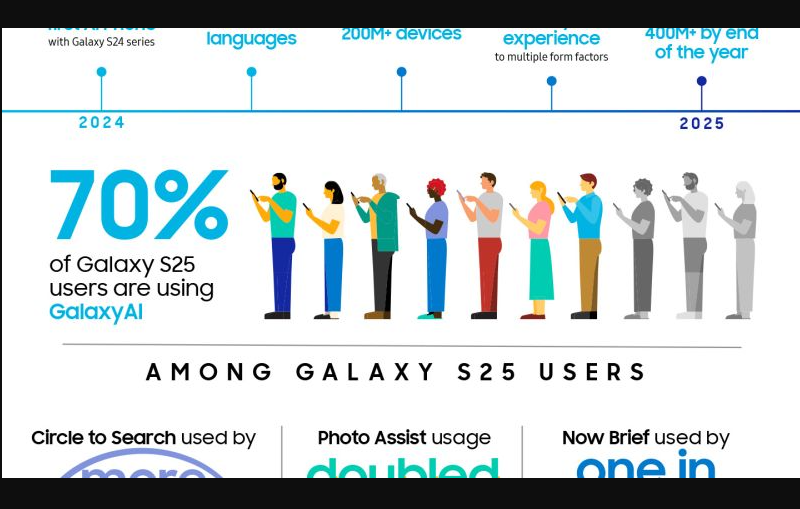Samsung Galaxy has announced ambitious plans to extend its Galaxy AI platform to 400 million devices globally by the end of 2025, following a year of exponential growth and increasing user reliance on mobile artificial intelligence.
Launched with the Galaxy S24 series, Galaxy AI has played a central role in Samsung’s strategy to democratize next-gen mobile intelligence. Its suite of tools, built in partnership with Google AI, includes productivity boosters such as real-time translation, personalized notifications, AI-powered search, and advanced voice command functionality.
Recent data from Symmetry Research, released during Samsung’s second Galaxy AI Forum, highlights how deeply mobile AI is becoming embedded in users’ daily lives. The survey found that 47% of consumers now depend on AI features daily, indicating a shift from optional tech to an essential utility.
“We’re not just building features — we’re shaping an ecosystem where AI supports how people live, work, and connect,” said a Samsung Galaxy spokesperson.
Gemini Leads the Charge
The integration of Google Gemini into Galaxy AI appears to be driving much of this momentum. According to Samsung, usage of Gemini — Google’s large language model — tripled among Galaxy S25 users compared to the previous generation. The tool supports various AI functions from writing assistance to task automation, embedded directly within Samsung’s One UI interface.
Additionally, over 70% of Galaxy S25 users actively engage with either Samsung or Google AI tools on a regular basis — a notable benchmark in the adoption of on-device AI.
Shift Toward Voice and Personalization
The research also shows a major behavioral shift: 45% of users now use voice commands as often as traditional typing, marking a transformation in how people interact with smartphones. The appeal lies in proactive and multimodal AI, where devices can anticipate needs, suggest actions, and engage users across voice, text, and visual input.
Samsung emphasized that user privacy and security remain core to its AI vision. Galaxy AI features are built with local processing capabilities when possible, ensuring that sensitive data stays on the device.
What’s Next?
Samsung says its goal of bringing Galaxy AI to 400 million devices includes not just new smartphones, but also select tablets, foldables, and wearables, enabling broader access to intelligent mobile capabilities across its product ecosystem.
By scaling its AI reach, Samsung is positioning Galaxy AI not just as a premium feature, but as a standard toolset for the modern mobile user — one designed to adapt, learn, and grow with each interaction.
As the lines blur between human intention and digital intuition, Samsung’s investment in AI may not just define future smartphones — but how we live with them.

